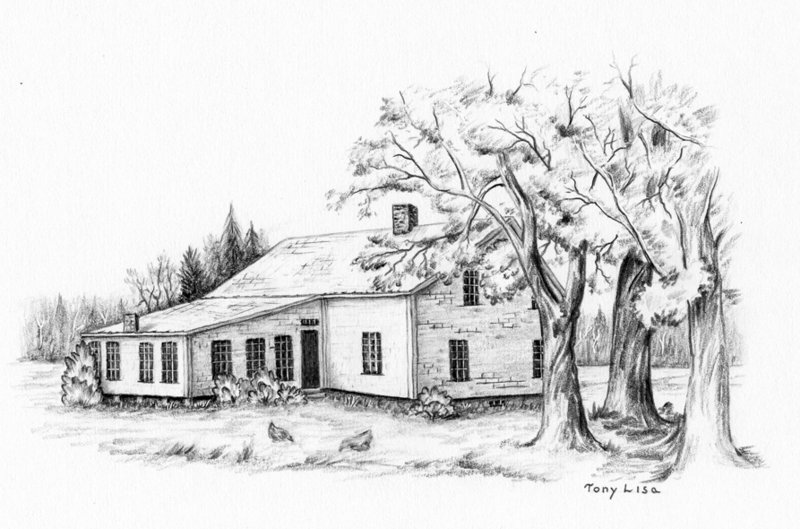Ever wonder what happened to the poor and indigent and entire families down on their luck in our area some 200 years ago? The town of Cumberland just received a state grant to further document and preserve some of this early history.
Cumberland became a town in 1821 and like many localities had a board, the Overseers of the Poor, to deal with such matters.
Thomas Bennett, director of the Prince Memorial Library in Cumberland has a degree in history and has been organizing these documents. The Historical Records Collections Grant Program, administered by the Maine Historical Records Advisory Board, will allow the documents to be both organized and digitized so that they may be better preserved and accessed.
One such document from 1826 outlines the servitude of a 12-year-old named Jacob Easters who was bound into an apprenticeship with one William Buxton of Cumberland. In the agreement, Buxton was to care for the young Easters for nine years until he was 21. Buxton was to instruct the young lad in “the art, trade, or mystery of a Husbandman or Farmer,” as well as teach him to read, write and matters of arithmetic. At the end of the contract Buxton agreed to provide Jacob Easters with “two suits of new wearing apparel, one suitable for Lords’ Day, and the other for working days, and a yoke of Young Cattle worth thirty dollars or that Sum in cash.” Apparently these were necessities for a young man to make his way in the world of early 19th century Maine.
It asks us to reflect on what the equivalent might be for a young person of today.
Through the documents Bennett discovered that indentured servitude was more common than was previously believed.
“When you think of an indentured servant, you don’t often think of a child born and raised in Cumberland, Maine,” Bennett said.
Cumberland’s project began five or six years ago when Bennett was working with town clerk Nadine Daniels. The town had several 19th century documents from the Overseers of the Poor. An earlier grant from the Davis Family Foundation allowed the material to be archived and protected in special sleeves, placing them in a far better state of conservation.
Besides indentured servants, the Overseers of the Poor also had to deal with what were referred to as “paupers.” Early definitions of pauper reflect a person of indigent means who may become chargeable to a parish. A similar practice happened in early Maine. Whenever a destitute person was discovered in a particular city or town, and that person held legal residence elsewhere, that municipality had the right to charge the other locality for that person’s care.
In 1825 such a case occurred. Cumberland has an original document sent by Portland’s Overseers of the Poor regarding a family of eight, the Estes, which had become chargeable in Portland as paupers. Cumberland was asked to order their removal from Portland or otherwise provide for the family.
What’s interesting is that the Estes family is the same as the Easters family cited in the earlier indenture document of 12-year-old Jacob Easters. The Cumberland Overseers of the Poor documents in the town archives list the family name as Easters, Esters and Estes. It appears 12-year-old Jacob Easters was the son of Jesse Estes. Once notified by Portland, Cumberland dealt with the destitute family by “binding out” at least three of its children into servitude. Dependents were bid out to local farmers and others’ care who benefitted by getting someone to work for them.
Bennett feels the records are important to preserve.
“The way a community takes care of its lesser-privileged says something about the community and its people,” he said. “Back then the law stated that each town had to take care of its poor. Now it’s different. You can be a Lewiston resident and go to Portland and get general assistance.”
On April 19, Bennett will give a talk sponsored by the Cumberland Historical Society on these documents, as well as the history of two of Cumberland’s early town farms, a place where the poor were often housed. For more information, contact the Prince Memorial Library in Cumberland.
Don Perkins is a freelance writer who lives in Raymond. He can be reached at:
presswriter@gmail.com
Send questions/comments to the editors.



Success. Please wait for the page to reload. If the page does not reload within 5 seconds, please refresh the page.
Enter your email and password to access comments.
Hi, to comment on stories you must . This profile is in addition to your subscription and website login.
Already have a commenting profile? .
Invalid username/password.
Please check your email to confirm and complete your registration.
Only subscribers are eligible to post comments. Please subscribe or login first for digital access. Here’s why.
Use the form below to reset your password. When you've submitted your account email, we will send an email with a reset code.